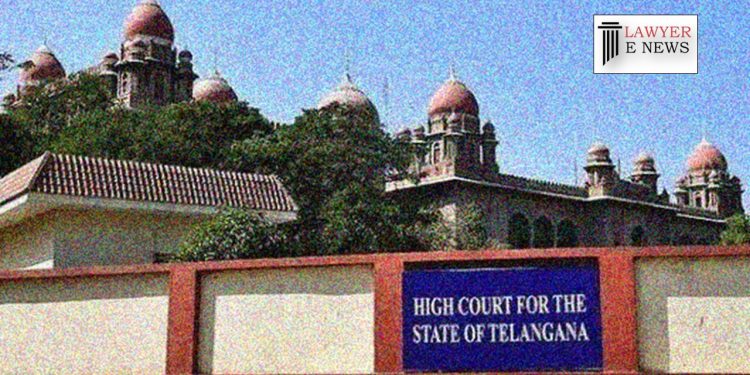-
by Admin
15 February 2026 2:36 AM



In a significant judgment, the Telangana High Court, under Justice C. V. Bhaskar Reddy, has ruled on a writ petition filed by New Lucky Kirana and General Store, challenging the confiscation order issued by the Prohibition and Excise Department. The case centers around the seizure of 4998 kgs of black jaggery and 3600 kgs of alum from the petitioner’s shop.
New Lucky Kirana and General Store, a proprietary business, had its premises raided on March 5, 2024, by the Excise authorities, resulting in the seizure of substantial quantities of black jaggery and alum. The store, operating with valid trade and tax licenses, including registration under the Food Safety and Standards Act, 2006, contested the seizure as arbitrary and not in accordance with the due process of law.
Lack of Evidence for Illicit Intent: The court emphasized that mere possession or transportation of black jaggery does not constitute an offense under the Telangana Excise Act, 1968, unless it is proven to be intended for the manufacture of illicit liquor.
Reference to Precedents: The judgment referenced the Full Bench decision in Ganesh Traders and other significant cases such as Athukuri Subba Rao vs. The State of Telangana. The court reiterated the necessity of a "reason to believe" that the seized materials were meant for illicit liquor production before any confiscation could be justified.
Directions for Appeal and Release: The court directed the petitioner to file an appeal under Section 46C of the Telangana Excise Act. Additionally, it ordered the provisional release of the seized goods upon the petitioner furnishing a bank guarantee equivalent to the value of the goods.
Justice Reddy’s observations underscored the importance of strict compliance with legal provisions in excise-related offenses. The court found that the authorities had not adequately demonstrated a reasonable belief that the black jaggery was intended for illicit purposes. This lack of evidence rendered the confiscation arbitrary.
The judgment highlighted the principles laid down in earlier cases, notably the need for concrete evidence to support the seizure of goods suspected to be used in illegal activities. The court’s insistence on due process and legal compliance serves as a critical reminder of the limits of excise authority powers.
Conclusion The Telangana High Court’s decision in this case reaffirms the protection of lawful trade practices against arbitrary governmental actions. By directing the release of the seized goods and allowing the petitioner to challenge the confiscation through proper legal channels, the court has reinforced the importance of due process.
Date of Decision: May 16, 2024
New Lucky Kirana and General Store vs. State of Telangana
